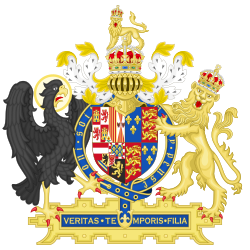| Act of Parliament | |
 | |
| Long title | An Act for the Relief of the Poor. |
|---|---|
| Citation | 2 & 3 Ph. & M. c. 5 |
| Territorial extent | England and Wales |
| Dates | |
| Royal assent | 9 December 1555 |
| Commencement | 21 October 1555 [a] |
| Repealed | 28 July 1863 |
| Other legislation | |
| Amends | |
| Amended by | Continuance of Laws Act 1558 |
| Repealed by | Statute Law Revision Act 1863 |
Status: Repealed | |
| Text of statute as originally enacted | |
The Poor Act 1555 (2 & 3 Ph. & M. c. 5) was an act of the Parliament of England passed by Queen Mary I. It is a part of the Tudor Poor Laws.
Contents
The act extended the Poor Act 1551 (5 & 6 Edw. 6. c. 2) and added a provision that licensed beggars must wear badges. The provision requiring badges was added to shame local community members into donating more alms to their parish for poor relief. [1]
